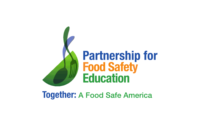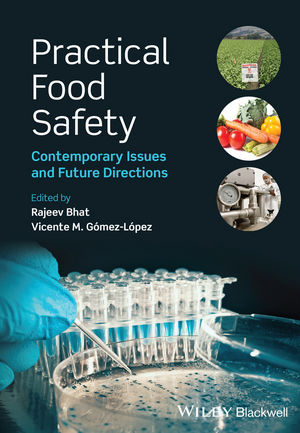New Directions for the Global Food Safety Partnership

The imperative of strengthening food safety capacity is making its way into the global dialogue; the food safety community is embracing the potency of collaboration when it comes to building capacity to implement and regulate food safety.
After all, it’s not just in our best interests. There’s growing awareness that knowledge sharing, cooperation and other partnerships are essential to improving food safety competencies in developing and middle-income countries. When food safety competencies in these countries are upgraded, the result is the production of safer food, which improves public health, facilitates market access, contributes to enhanced food security and improves people’s well-being.
To get there, food safety capacity development requires investments from both public and private actors in a synergistic manner so as to not lose out on opportunities for collaboration. Recently, these stakeholders have acknowledged the need for a platform where international organizations, food regulators, private sector producers, processors and retailers, technical service providers, leading academic institutions and others can convene to influence the development and implementation of collaborative approaches.
That’s why, in December 2012, the World Bank, together with a number of public, private and academic partners, established the Global Food Safety Partnership (GFSP) as an innovative, public-private initiative dedicated to supporting and promoting global cooperation for food safety capacity building. Over the course of the last year, we have been working together with a number of key partners to update and advance our mission to align with global developments and incidents in food safety, which includes revisiting our strategic direction and operations. This effort has resulted in an updated “GFSP Strategic Framework to 2020,” adopted in October 2015, and a charter that sets out the new governance arrangements for the Partnership.
To fulfill its mission, the GFSP will continue to act as a robust platform to foster public-private partnerships to set the course of food safety capacity building. In our role as a global advocate for food safety capacity building, GFSP will identify issues and priorities, seek to influence relevant investments in developing and middle-income countries, and disseminate lessons learned and best practices. Additionally, we believe we can play a key role in convening partners in order to deliver integrated solutions to address food safety issues facing our stakeholders globally.
The GFSP Strategic Framework to 2020 organizes our priorities and activities into three “pillars:” supporting analytical work, convening partners and enabling effective implementation of capacity-building initiative. Underpinning these pillars is our foundational approach to governance and operations.
The new governance arrangements adopted in early December 2015 through a new charter establish a Governing Council as the decision-making body for the GFSP. The Governing Council voting members include financial donors, international organizations and other groups invited by the Council, whereas other key international organizations participate as observers. The Governing Council is responsible for approving the GFSP annual work program, as well as for providing strategic guidance for the overall effort. As part of the new governance and management arrangements, the World Bank, in consultation with the Governing Council, is recruiting a senior program manager to provide overall management and leadership of the GFSP Secretariat.
Urgent challenges of global significance continue to impact global food safety, especially in developing and middle-income countries. We believe that public-private collaborations hold the promise for enterprising solutions that will benefit the greater global public good.
We invite you to learn more about the GFSP. For more information, visit our website at www.gfsp.org or contact the Secretariat at gfsp@worldbank.org.
Nathan Belete is chair of the GFSP Governing Council and World Bank Agriculture & Food Practice manager for the East Asia & Pacific region.
Looking for a reprint of this article?
From high-res PDFs to custom plaques, order your copy today!








